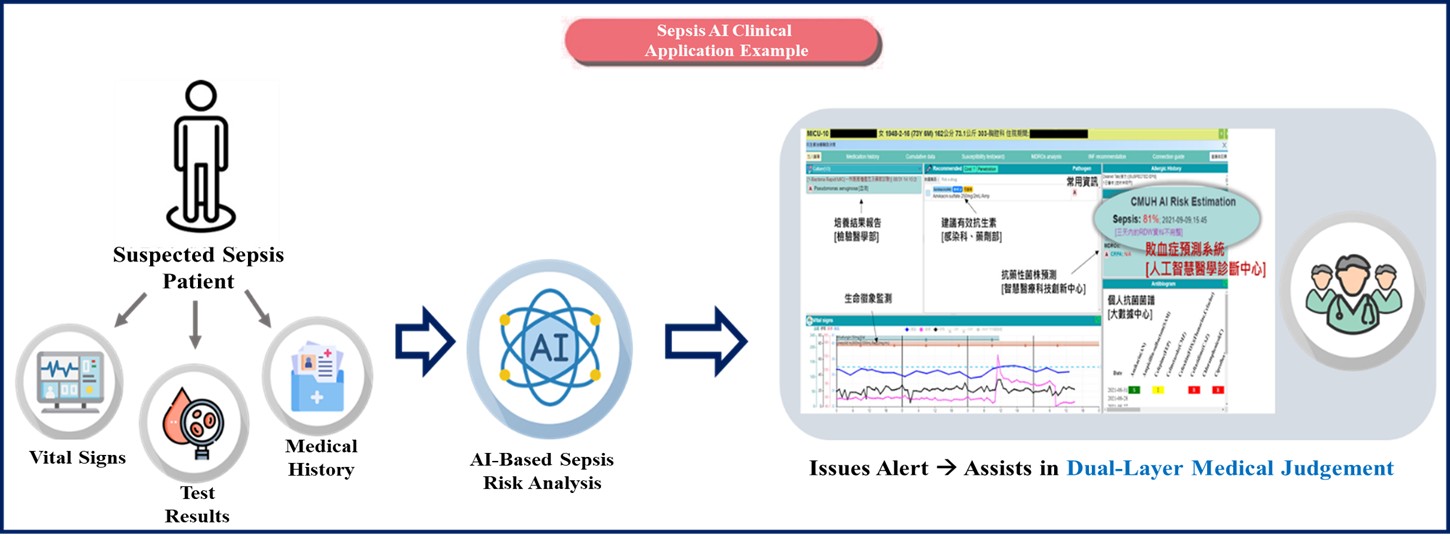Artificial Intelligence in Medicine
AI-Assisted Sepsis Risk Prediction System
Sepsis is the primary fatal pathway for infectious diseases. Statistics show that globally, there are approximately 47 to 50 million sepsis patients annually, with at least 11 million unfortunate deaths. According to the latest international treatment guidelines, to effectively reduce the risk of patient mortality, medical teams must administer empirical broad-spectrum antibiotic treatment within one hour of diagnosis. However, traditional pathogen detection methods (such as blood cultures) have numerous limitations, including unsuccessful pathogen isolation in nearly 50% of tests, low positive detection rates, and lengthy testing processes.
To improve sepsis detection efficiency and assist physicians in adjusting medication regimens in real time, our hospital utilized deep learning technology to successfully develop the "Sepsis Artificial Intelligence Assisted Diagnostic System" by analyzing patients' historical physiological data and blood test reports. This system helps medical teams identify sepsis risks early, effectively increasing patient survival rates.
This system has been integrated as a prediction module in our hospital's Smart Antimicrobial Platform. When the system issues a high-risk alert, the healthcare team can immediately initiate enhanced care protocols and strengthen physiological indicator monitoring. For emergency interventions, the medical team can implement antibiotic treatment and fluid supplementation promptly based on system recommendations. The system also continuously monitors the patient's treatment response and prognosis, allowing the medical team to adjust treatment plans as needed.
This system demonstrates excellent diagnostic accuracy, including overall accuracy of 87%, sensitivity of 78%, and specificity of 91%. In clinical applications, according to statistics from November 2021, sepsis risk prediction was applied to approximately 1,800 patients, correctly identifying over 1,400 non-sepsis cases and 70 sepsis cases, with an accuracy rate exceeding 80%. Furthermore, these research results were presented at the 2021 International Conference on Computational Intelligence Methods for Bioinformatics and Biostatistics (CIBB) and have received a Taiwan patent (Certificate No.. I803893). A US patent is also pending (Application No..: US20220409122A1). Regarding project monitoring mechanisms, plans are currently underway to optimize the model and re-implement clinical validation with regular clinical discussion meetings. The physician labelling schedule will be determined according to the newly planned validation methods to facilitate subsequent model optimization and revalidation.

Awards
HIMSS Davies Award of Excellence
Patents
- Taiwan patent (Certificate No.. I803893)
Contact window
Project Management Group
Phone: +886-4-22052121ext12534
